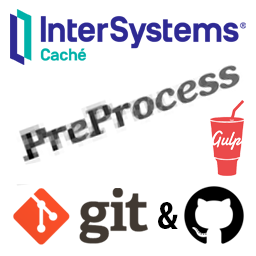Continuing on from my last post, I am posting my succesful output for the Day 2 Part 1 below.
A full explanation of Day 2 part 1 can be found at: https://adventofcode.com/2018/day/2 and the input can be found
at: https://adventofcode.com/2018/day/2/input
A brief description of this exercise is that you receive a sequence of strings.

 After many sleepless nights it's a pleasure to announce the newer, better, moderner ObjectScript compiler which implemented pretty much everything you ever wanted to have in
After many sleepless nights it's a pleasure to announce the newer, better, moderner ObjectScript compiler which implemented pretty much everything you ever wanted to have in 
.png)

